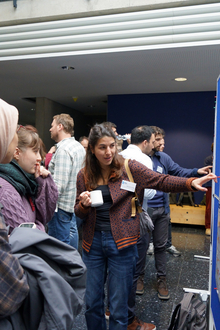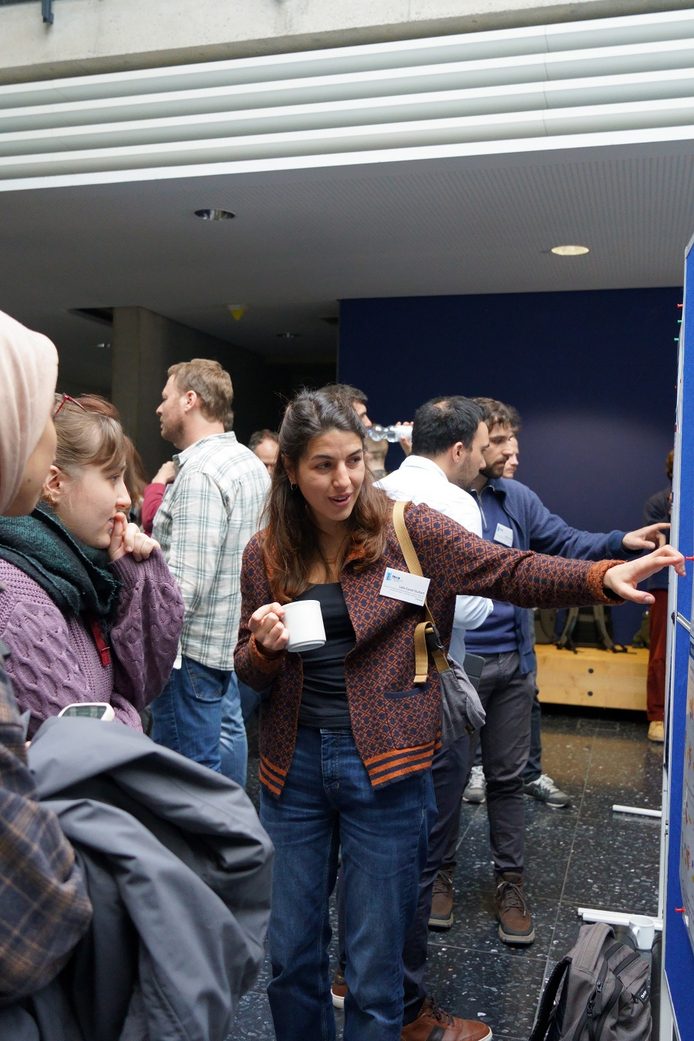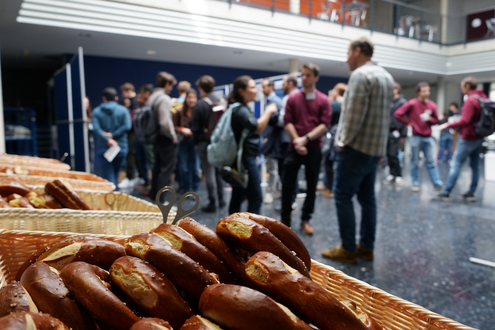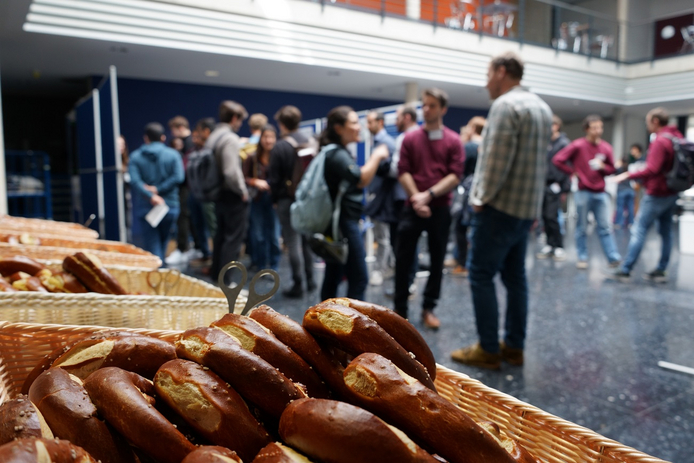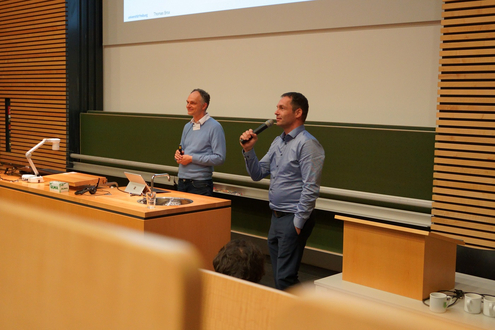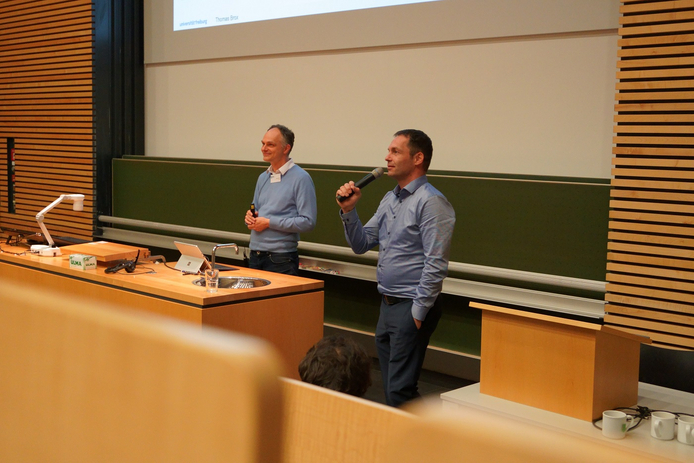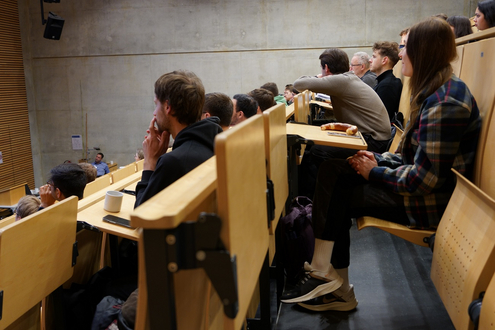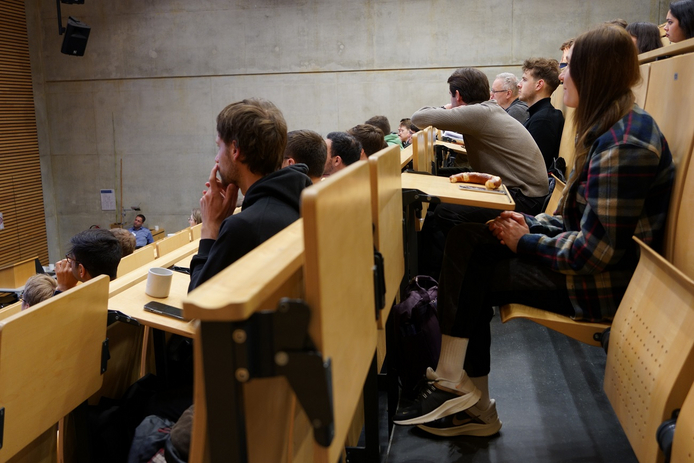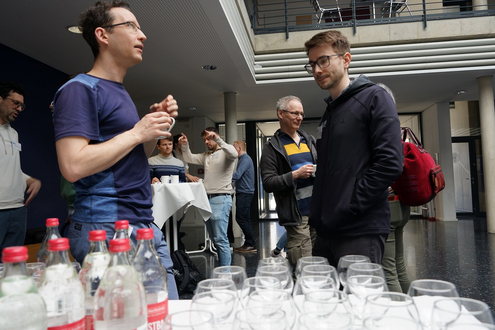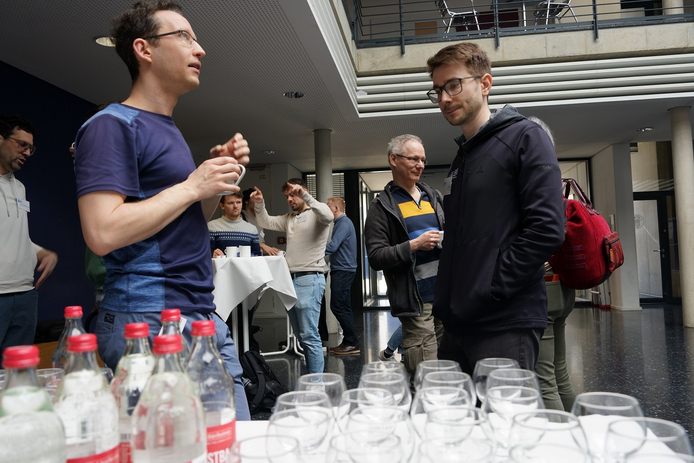Event Highlights
Keynote presentations
Programme | Abstracts
- Prof. Dr. Andreas Raue (Chair of Modelling and Simulation of Biological Processes, Department of Computer Science, Augsburg University) delivered a presentation on the application of data science in drug research and development, highlighting the role of machine learning and mechanistic modelling in pharmaceutical advancements as well as current bottlenecks.
- Prof. Dr. Fabian Theis (Director of the Helmholtz Munich Computational Health Center and Scientific Director of the Helmholtz Artificial Intelligence Cooperation Unit, Munich) provided a comprehensive summary of state-of-the art AI techniques applied to single cell data, which his team recently developed. These methods enhance the understanding of cellular functions and disease mechanisms, facilitating the development of virtual cell models that simulate cellular diversity across various conditions.
- Prof. Dr. Thomas Brox (Head of the Computer Vision Group, Department of Computer Science, University of Freiburg) concluded the day with reflections on the principles of modern AI, the major reasons why it outperforms traditional approaches, and shared the vision of deriving world models that also comprise causal and mechanistic principles.
Project presentations
A series of project talks provided a closer look at innovative research, showcasing novel and creative methodologies
- Dr. Marcus Rosenblatt (Institute of Physics, University of Freiburg) introduced his work on integrating single-cell variability into ODE models through L1-based learning of cell-type specific parameters.
- Dr. Florian Ingelfinger (Weizmann Institute of Science & University Medical Center Freiburg) presented CytoVI, a deep generative model designed to integrate data from antibody-based single-cell technologies.
- Dr. Anup Kumar (Bioinformatics group, Department of Computer Science, University of Freiburg) demonstrated a method using graph neural networks and explainable AI to prioritise biomarkers from DNA methylation data.
- Clemens Schächter (Institute of Medical Biometry and Statistics, Faculty of Medicine and Medical Center, University of Freiburg,) discussed his approach to enhancing network architecture alignment and perform predictions across biological species.
- Dr. Matthias Demant (Fraunhofer ISE, Freiburg) presented applications of physic-informed machine learning for quality inspection in solar cell production.
The keynotes programme and project presentations were complemented by a series of interactive and getting-to-know elements, including speed-dating rounds and poster presentations, which provided ample opportunities for exchange and discussion throughout the day.
The TRAIN Symposium strengthened connections among AI researchers across disciplines and provided a platform to gain insights from renowned AI leaders, and explore new collaborative opportunities. With a strong contribution by early career researchers, it showcased new talent and encouraged to embrace AI technologies. The engaging format and focus on interdisciplinary research positions TRAIN’s well to advance AI-driven initiatives in life science research and in the Upper Rhine Valley.
For further information and upcoming events, please reach out to Dr. Clemens Kreutz and check our event calendar.







